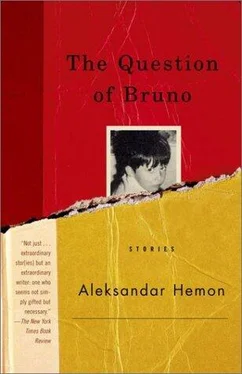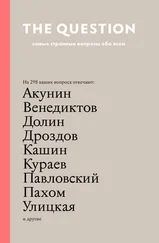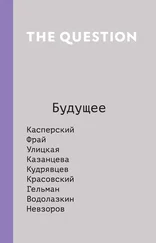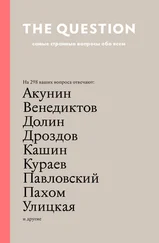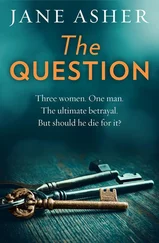Later investigations found no Hemons in the Bible, although it is entirely unclear who the researcher was and how exactly the research was conducted. The official explanation, accepted by the entire family, was that the priest was performing an act of vicious revenge, probably because my Aunt Amalija called him “a pig in the vestment” while the wrong ears were listening, or because my father married a communist.
In any case, few thought that we carried the mortifying burden of the ancient sin on our shoulders, or that we would have a family reunion in hell. “We have always been honest, hard-working people,” my father announced to the priest who replaced the hostile one (who had moved to Canada), pointing his finger toward the ceiling, beyond which, presumably, there was the supreme judge and avenger. The priest amicably nodded and accepted a bottle of home-made slivovitz and a jar of first-class honey, with which the potentially eternal dispute between the Hemons and God (regarding his Son) was settled, it seemed then, satisfactorily for both parties.
I have had doubts, however, along with some of my younger cousins and a very close relative. I have had doubts and fears that indeed we could have committed the terrible sin of sniggering at someone else’s suffering. Perhaps that’s why we emigrated, again, in the 1990s, from Bosnia to the United States. Perhaps this is the punishment: we have to live these half-lives of people who cannot forget what they used to be and who are afraid of being addressed in a foreign language, not being able any longer to utter anything truly meaningful. I have seen my parents, mute, in an elevator, in Schaumburg, Illinois, staring at their uncomfortable toes, stowed in foreign shoes, as a breezy English-speaking neighbor entered the elevator and attempted to commence a conversation about the un kind Midwestern weather. My father kept pressing the buttons 11 and 18 (where the verbose American was heading), as if they were supposed to terminate the fucking multilingual world and take us all back to the time before the Tower of Babel was unwisely built and history began to unwind in the wrong, inhuman direction. My mother occasionally grinned painfully at the confounded neighbor, as the elevator rose arduously, through the molasses of silence, to the eleventh floor.
2
Inspired by the success of the Sarajevo Olympiad and the newly established ancient family history, the family council, headed righteously by my father, decided to have an epic get-together, which was to be held only once, and was to be recorded as the Hemoniad. The minutes from that family council meeting (taken by me) can scarcely convey the excitement and joyous awareness of the event’s future importance. Allow me to step out of my worn-out historian’s shoes and become a witness for an instant: I can attest that there was a moment of comprehensive silence — a fly was heard buzzing stubbornly against the window pane; fire was cracking in the stove; someone’s bowels disrespectfully grumbled — a moment when everyone looked into the future marked by the Hemoniad, the event that would make even our Homeric cousins envious. Even Grandfather, in one of his precious lucid moments, seemed to recognize everyone and did not ask “Where am I?” as he normally did. The magic was dispelled when the milk pot boiled over, and a swarm of aunts flew toward the stove to repair the damage.
Thus it was decided that the Hemoniad was to be held in June 1991, at my grandparents’ estate, which was falling apart because of my grandfather’s dotage, but was, nevertheless, “the place where our roots still hold the land together, fighting cadaverous worms.” It was also decided that the Hemons should reach out to the Hemuns, the family branch that grew out of the tree trunk of Uncle Ilyko, my grandfather’s brother.
This is their history: Uncle Ilyko went from Bosnia to Ukraine to fight for Ukrainian independence in 1917. After the humiliating defeat, in 1921, he walked to the newly formed border between Romania and Yugoslavia, where they arrested him and put him on the train back to Kiev. He jumped off the train somewhere in Bukovina, and then roamed, as the first snow of the year, ominously abundant, was smothering the earth. He almost froze to death, but was found and saved by a young war widow, who nursed him out of glacial darkness all winter, asking for nothing from him but to warm her cold feet and dilute her loneliness. In the spring, he got up from the shaky bed, took from her trembling hands a bundle with knit socks, a brick of cheese, and a daguerreotype of her. He kissed her tearful cheeks, including a hirsute wart, and walked, only at night, back to the Romanian-Yugoslav border. Sometime in the spring of 1922, he swam across the Danube, whose murky, cold waters dissolved the daguerreotype.
Well, we never liked him. He was a violent, impetuous man. The day Ilyko returned home — where everyone thought he had long been dead — he got into a fight with Grandfather, because my grandfather had married the girl Ilyko had had a crush on. Infuriated, he went to Indjija, Serbia, married a native, and let a drunk clerk change his name to Hemun, which became the original sin of the Hemun branch. Indeed, the Hemuns avoided contact with the descendants of my grandparents, barely spoke Ukrainian, sang no Ukrainian songs, danced no Ukrainian dances, and thought of themselves as Serbs. The Hemuns, then, were to be saved from “the weed of otherness,” and come back to the forest of flesh and bone growing out of the ancient Hemon roots. When they told Grandfather that the Hemuns were to come back to their historic home, he — God bless him — asked: “And who are they?”
In the weeks after the family council meeting, the invitation was forged in the Olympic minds of Uncle Teodor and my father. Uncle Teodor made suggestions, and my father rejected them as he typed. Let me submit an image: Uncle Teodor running different formulations by my father: “… the branch that was unjustly severed … the branch that fell off and broke the tree’s heart… the branch that shriveled, detached from its roots …” My father’s index fingers leaping up and down the typing keyboard, like virgins dancing for gods — Father occasionally using a virgin to pick his nose, and saying: “No … no … no … no …” As with all the great documents of history, the Hemoniad invitation went through many drafts and finally attained the form of exceptional grace and power. It clearly stated the purpose (“… to reattach the most formidable branch to its just place …”); the place (“… the Hemon family estate, where thousands of years of history are told by bees and birds and chickens …”); the logistics (“… we shall feast on spit-roast piglets and mixed salad, and if you need cakes and pastry, you are advised to make them yourselves …”); the structure (“… spare time will be spent in the house, in the courtyard, in the backyard, in the field, in the orchard, in the apiary, in the garden, in the cowshed, by the creek, in the forest, in conversation and exchange of pleasant words …”). The invitation was gladly received by many, and responses from all corners of the family began pouring in. The participation of many Hemuns was heralded by a phone call from the oldest Hemun, Andrija, and a tide of elation advanced through the family. Oh, those days when planning a piglet slaughter over the phone had mythological proportions; when old stories were excavated from the basements of memory, and then polished and embellished; when sleepless, warm nights were wasted in trying to make sleeping arrangements, until Uncle Teodor suggested the hay under the cowshed roof, where “the youth” could sleep; when my mother kept rolling her eyes, suspicious of any mass meeting of people of the same ethnicity; when aunts independently met to organize the cake-and-pastry production, lest we have a surfeit of balabushki.
Читать дальше
